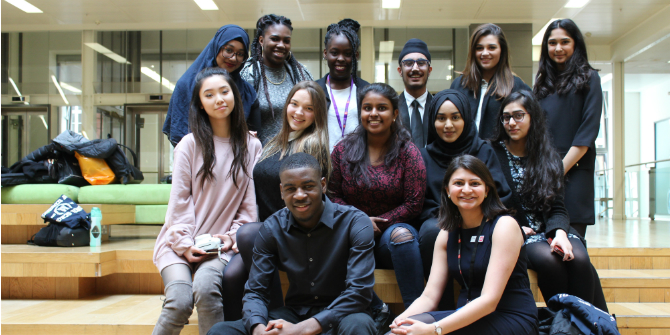International History at LSE is ranked number 7 in the QS world rankings, and LSE’s name is a misnomer, leading some people to believe History is not taught at LSE. While choosing a school for my Masters study in History, LSE was my first choice. And that’s because LSE not only has world-class faculty working in the field of International History, but it is also a great center for research on World War and Cold War History.
Why should one study History for their Masters degree? According to the Department of International History at LSE:
The particular characteristics of History as a discipline: Its subject matter, distinguishing it from other humanities and social sciences, consists of the attempts of human beings in the past to organise life materially and conceptually, individually and collectively, while the object of studying these things is to widen students’ experience and develop qualities of perception and judgement. History provides a distinctive education by providing a sense of the past, an awareness of the development of differing values, systems and societies and the inculcation of critical yet tolerant personal attitudes.
The department boasts scholars like Prof. Sönke Neitzel, who specialises in military history of the First and Second World Wars; Prof. Heather Jones, who specialises in Prisoners of War during the First World War; Prof. Nigel Ashton, who specialises in Anglo-American relations; Dr. Antony Best, who is at the forefront of East Asian studies; Prof. Steven Casey, a specialist on 20th century United States History… and the list goes on. All the Professors are at the forefront of research and this department is the best place to start one’s academic career in History.
One of the most attractive things about this department is the student diversity. It is a natural assumption for a lot of people that to do History for a Masters degree you need to have studied History at undergraduate level. But here at LSE, students have come from a variety of disciplines – from Media to Law to Drama. Students from around the world come to LSE to learn more about historical methods, their application and historical analysis. History is not just learning about the past – it is about understanding the present consequences of past actions, and for that a passionate student is the requisite, more so than a student who is knowledgeable. This ethos of the department motivates hundreds of students every year to take up a History course at LSE.
The Department also hosts a Visiting Professor every year, who holds the Philippe Roman Chair in History and International Affairs. Professor Matthew Connelly from Columbia University held the chair this year, and also taught a non-assessed course for Masters students called Hacking the Archive. The course entailed understanding the use of computer science and other programming methods to extract information from the immense online archive of the Foreign Relations of United States (FRUS) and National Archives and Records Administration (NARA).
History means connecting the present with the past, and the Department always manages to engage students with contemporary issues, from the Holocaust commemoration, to Russia’s deadlock over Ukraine. It also invites distinguished Professors like David Reynolds and Professors within the Department like Janet Hartley to discuss current issues in historiography. Students can also choose from courses as varied as War Cultures or Secret Intelligence in the 20th Century.
Throughout the two terms I’ve spent at LSE, my Professors have encouraged me to question the material at hand, analyse and come up with my historical understanding of the situation. This has led to me becoming a more understanding critic, and improving my writing skills. The passionate pursuit of the subject truly makes this department a great place to study. I believe that after a degree from this department, I will not only be equipped for academic life, but I will also be able to implement my varied skills in any sector I wish to pursue a career in.
If you want satisfaction, flexibility and a passionate pursuit of the discipline for your Master’s degree, then you should definitely pursue a degree in International History at LSE.





